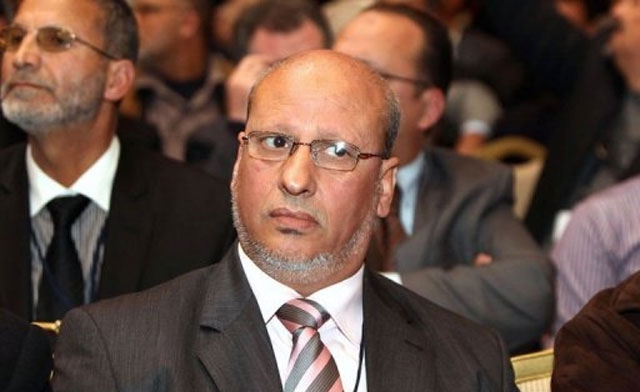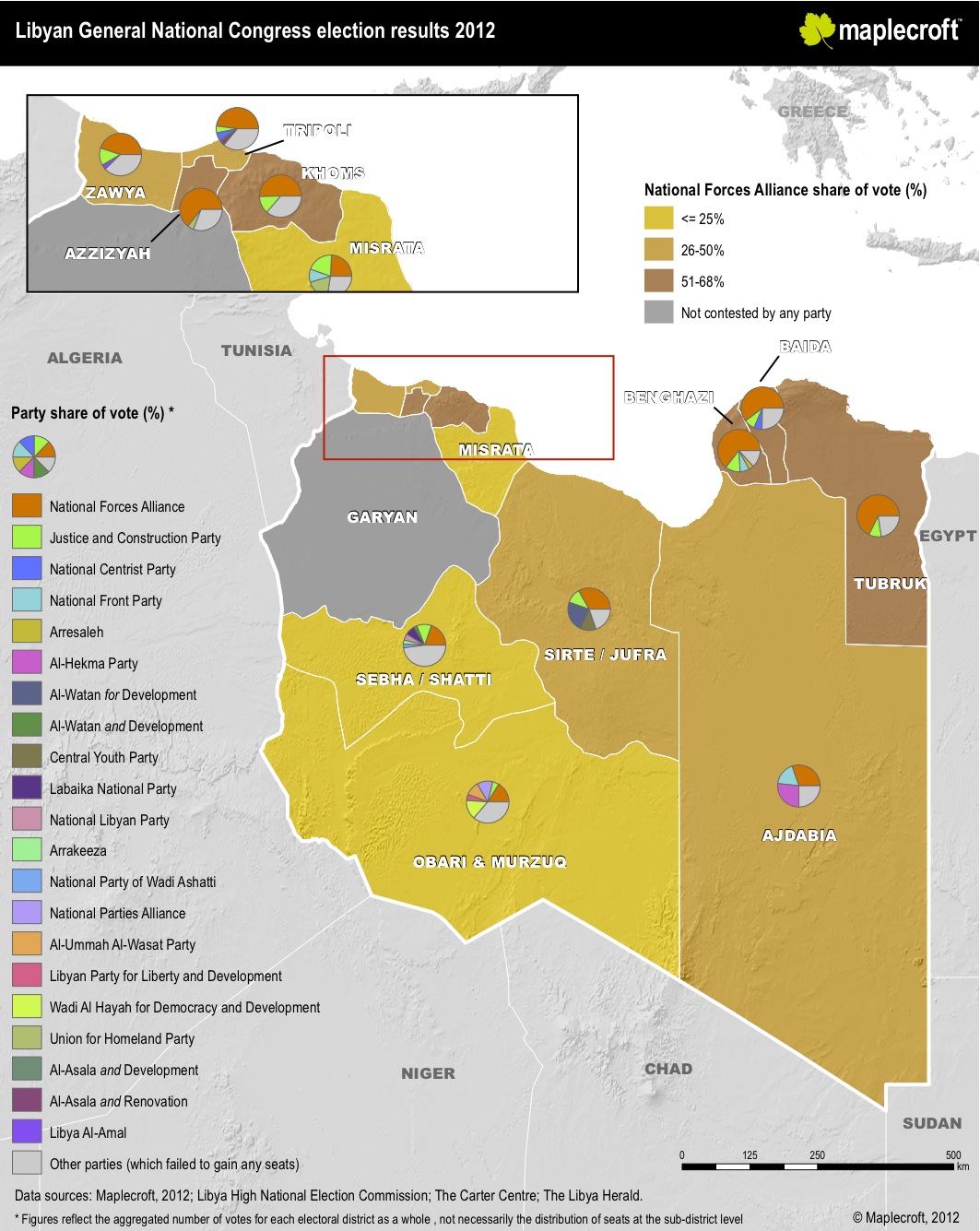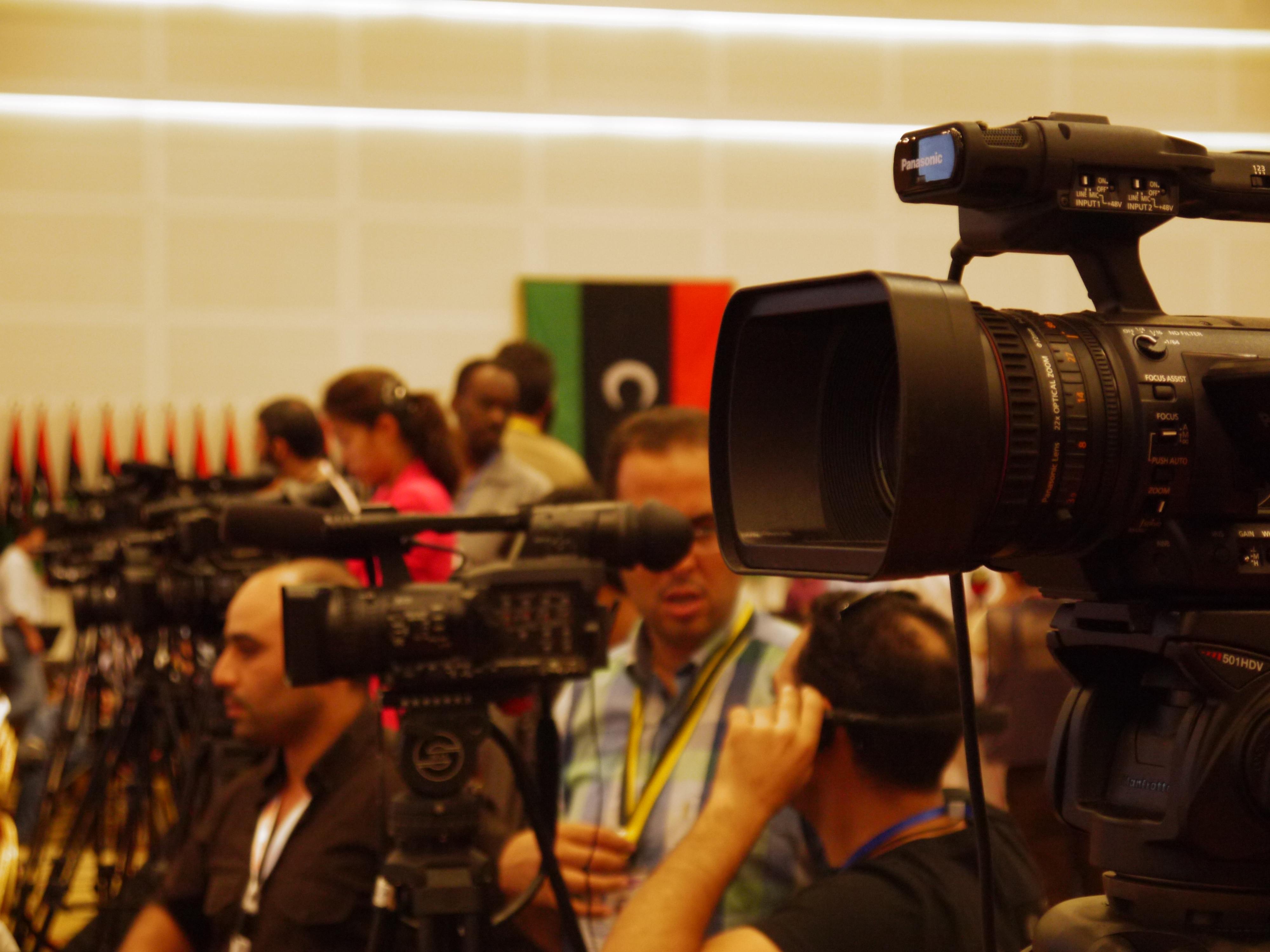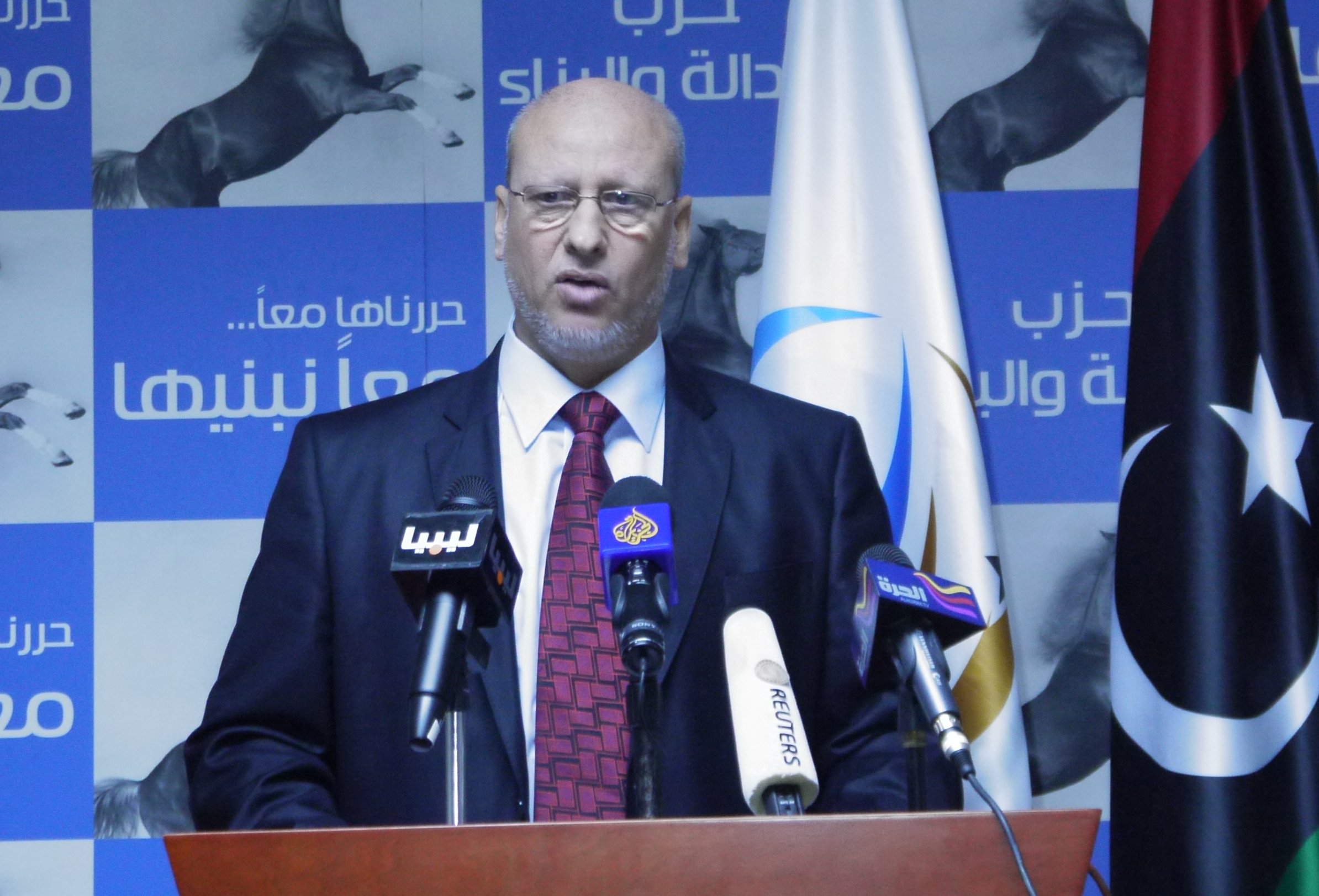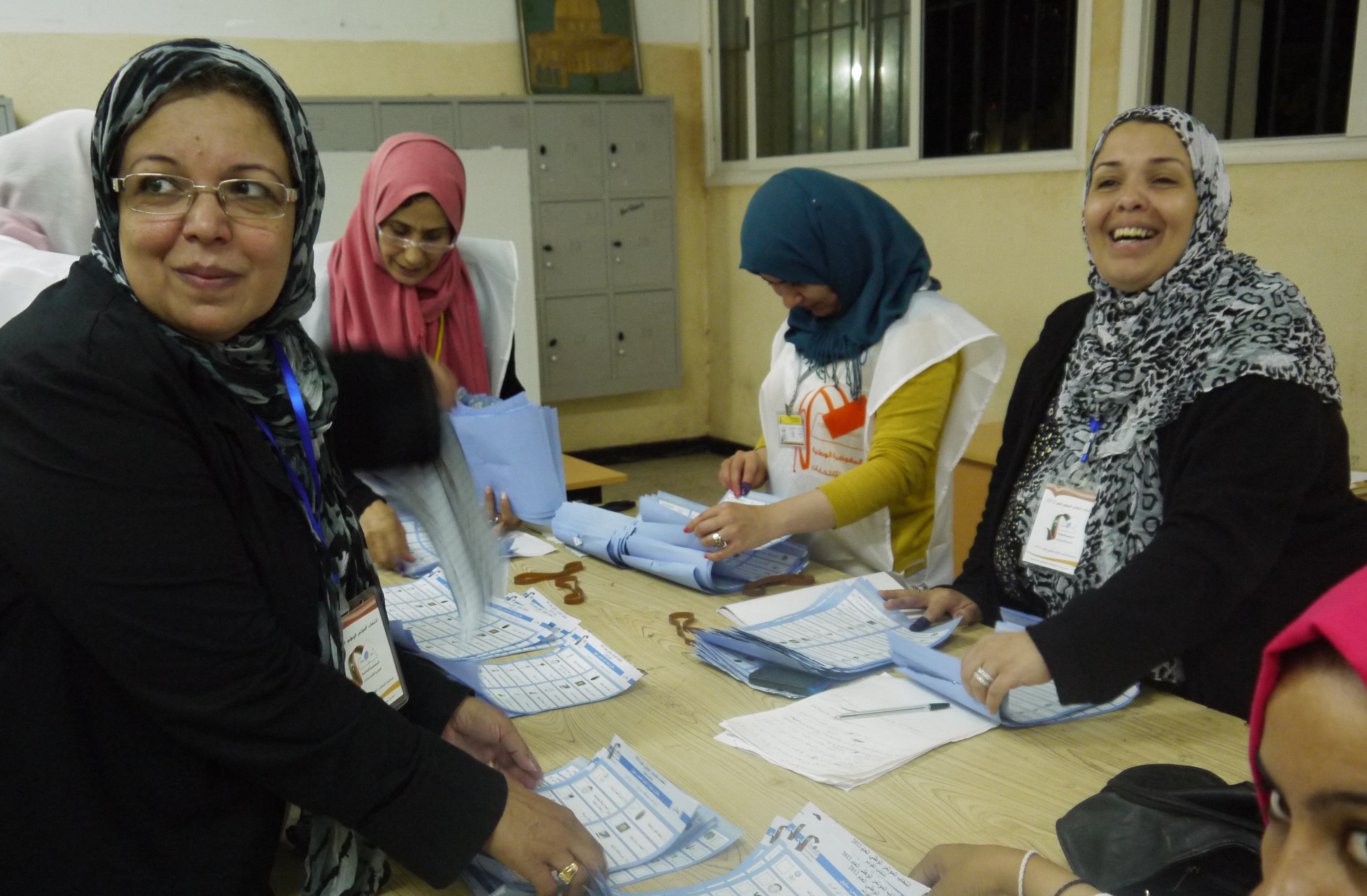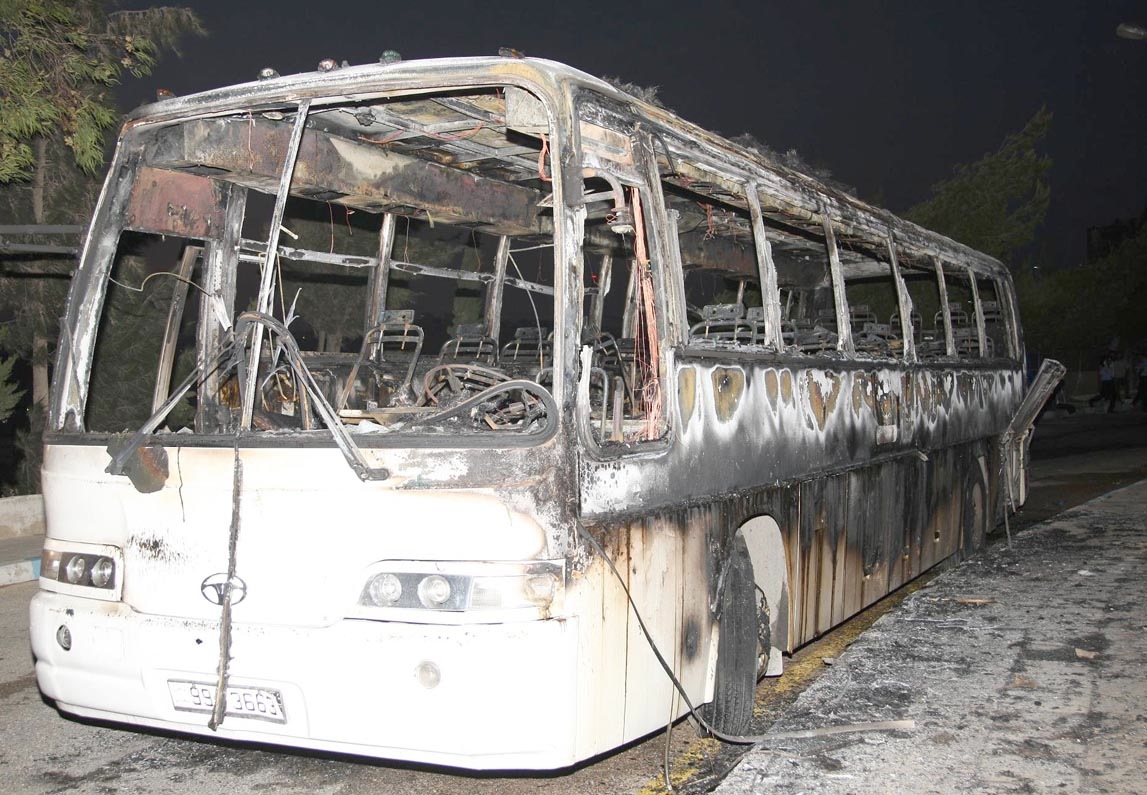By George Grant.
Tripoli, 12 July:
![Justice & Construction . . .[restrict]leader Mohammed Sawan](http://www.libyaherald.com/wp-content/uploads/2012/07/Sawan.jpg)
Mahmoud Jibril’s National Forces Alliance is not part of negotiations being led by the Justice & Construction party to try and form a majority in the National Congress, it was confirmed today.
Mohammed Sawan, who leads the Muslim Brotherhood-affiliated party, said that widely diverging views on the role of Sharia law in society constituted the primary source of disagreement between the two factions.
“Jibril believes that Sharia can only deal with certain aspects of life”, Sawan told the Libya Herald. “He is like Qaddafi in his views on Sharia. But Islam does not believe you can pick and choose… The government must enforce Islam in every aspect of its work”.
In spite of the fact that the Justice & Construction party looks set to suffer a crushing defeat at the hands of the National Forces Alliance in the party vote, Sawan believes he could secure a majority as part of a coalition with the support of individual candidates.
“We have been in contact with around 10 parties about this”, he said, “and a number of individual candidates. We believe about 15-20 of our members have been elected to individual seats, and we are reaching out to many others. Up until now, this has not involved Jibril”.
Notable parties Sawan claimed were involved in the negotiations include the Nation Party, which has taken one seat in Benghazi on current figures, and the Union for Homeland Party, which appears to have taken two. The Justice & Construction Party has taken 10 seats to date as against the NFA’s 28.
Whilst Sawan said it would be possible for Justice & Construction and the NFA to agree “on certain issues”, he emphasised that “the distance between us is much greater than it is between us and other parties”.
On Sunday, Jibril called for a grand coalition with the other parties in the hope of forming a government of national unity.
Whilst the NFA still looks set to lead the largest bloc within the Congress and form a government, securing an overall majority without the support of the Justice & Construction party would be more difficult.
Altogether, political parties will hold just 40 per cent of seats in the Congress, with individual candidates collectively holding 60 per cent. The extent to which individuals choose to rally around the political parties could be the most important factor in determining who governs Libya.
Asked if he had any concerns that an attempt to sideline the NFA might prove controversial given the size of the vote it received relative to other parties, Sawan repeated an assertion made in previous days that “some tricks had gone on” during the NFA campaign. He claimed that many people now regretted voting for the alliance.
“Most people thought Jibril was running as a candidate himself because his picture was on so many posters. Now they find out that he is not, they are starting to regret their votes”.
Sawan said he believed that Jibril’s capabilities were “very average”, but that many people associated him with success because of the prominent role he played as interim prime minister during the revolution.
“He is in educated man, and he could be helpful in the education sector, but he is not ready to take over at this tough period in time. He could be a university professor”.
Prior to Saturday’s elections, a number of observers had assumed that Libya’s status as a conservative Muslim country would result in many if not the majority of voters choosing avowedly Islamist groups such as the Justice & Construction party.
However, one of the most frequently cited reasons voters gave for not selecting such parties was that they disliked being told how to practice their faith.
“I am a good Muslim and I know my religion. I don’t need any party telling me how to be a Muslim; I need them to run the country”, was a common refrain.
Sawan said that voters who made such criticisms about his party failed to properly understand its Islamic programme and Islam itself.
“I believe those people are good Muslims but they do not understand Islam as they should. We want to re-educate people who don’t understand Islam. Our aim is to get the government to live by Islam.
“The people believe Islam is a relationship between them and their Creator, but we want a relationship between the people and the government”. [/restrict]


